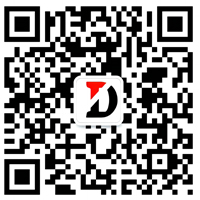In 2023, the global OTR tire market is outstanding, especially in the agricultural tire field, which has become the fastest growing segment for manufacturers. Industry insiders believe that as China's agricultural mechanization rate continues to increase, agricultural tires will be the next trend.
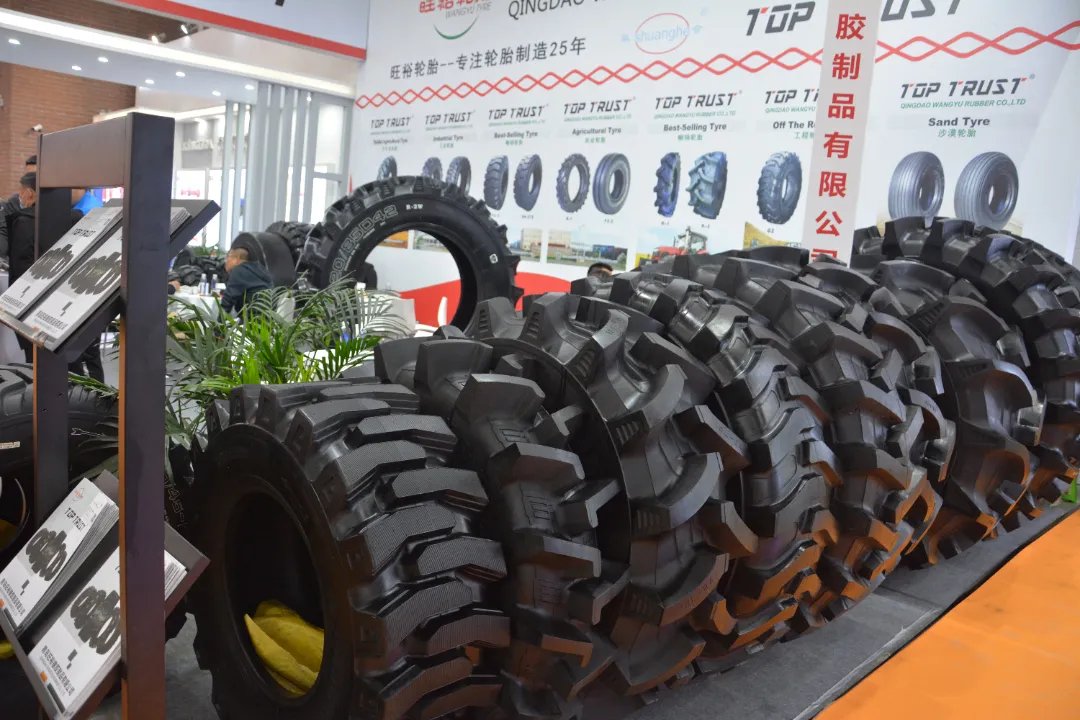
This article will introduce the future market size of agricultural tires and the main pattern classification for your reference.
Rapidly developing agricultural tire market
As a major agricultural country, China has 2 billion acres of basic farmland and requires a large amount of agricultural machinery to assist field operations every year. According to predictions from relevant agencies, the market size of China's agricultural machinery industry increased from 428.6 billion yuan in 2018 to 585.7 billion yuan in 2023, the average annual compound growth rate reaches 8.4%, showing an upward trend, and the market development prospects are broad.
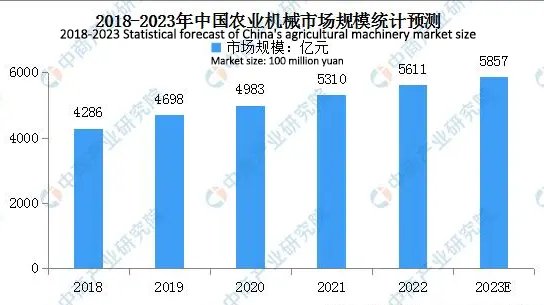
This has also strongly promoted the strong growth of corresponding tire demand. In recent years, the continued prosperity of the agricultural tire market has added a new incremental market for Chinese tires, and its development prospects are very promising.
According to statistics and forecasts from relevant organizations, the global agricultural tire market size in 2022 is 59.915 billion yuan, and the Chinese agricultural tire market size is 587 million yuan. It is predicted that the global agricultural tire market will reach 84.037 billion yuan in 2028, growing at a CAGR of approximately 5.87%.
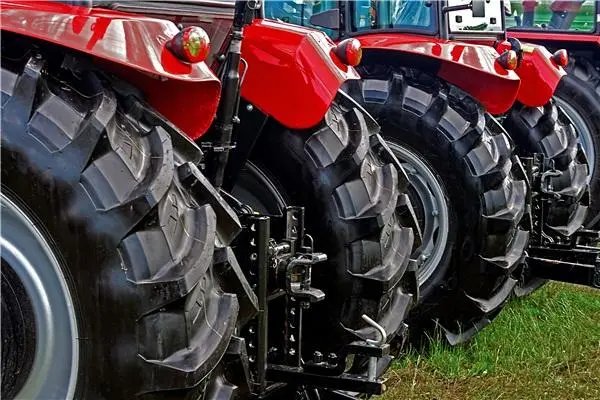
At the same time, China's per capita cultivated land area is 0.09 hectares, and the agricultural mechanization rate is 71%. The per capita cultivated land area in the United States is 0.48 hectares, five times that of China, and the agricultural mechanization rate has reached over 95%.
It can be seen that compared with developed agricultural countries such as the United States, China's agricultural mechanization rate has greater room for growth, which also means that China's agricultural tires still have strong growth potential.
At present, China's large tire manufacturers such as ZC Rubber and Guizhou Tire continue to make efforts in the field of agricultural tires. The agricultural tire production capacity of a number of Shandong tire factories such as Armour Rubber, Wangyu Rubber, and Taishan Tire continues to increase, and domestic agricultural tires are becoming the main force in the global agricultural tire market.
Pattern classification of agricultural tires
The tread pattern of agricultural machinery tires is a characteristic of its external surface. It not only affects the traction and stability of the tire, but also has an important impact on the performance of the tire in different terrains.
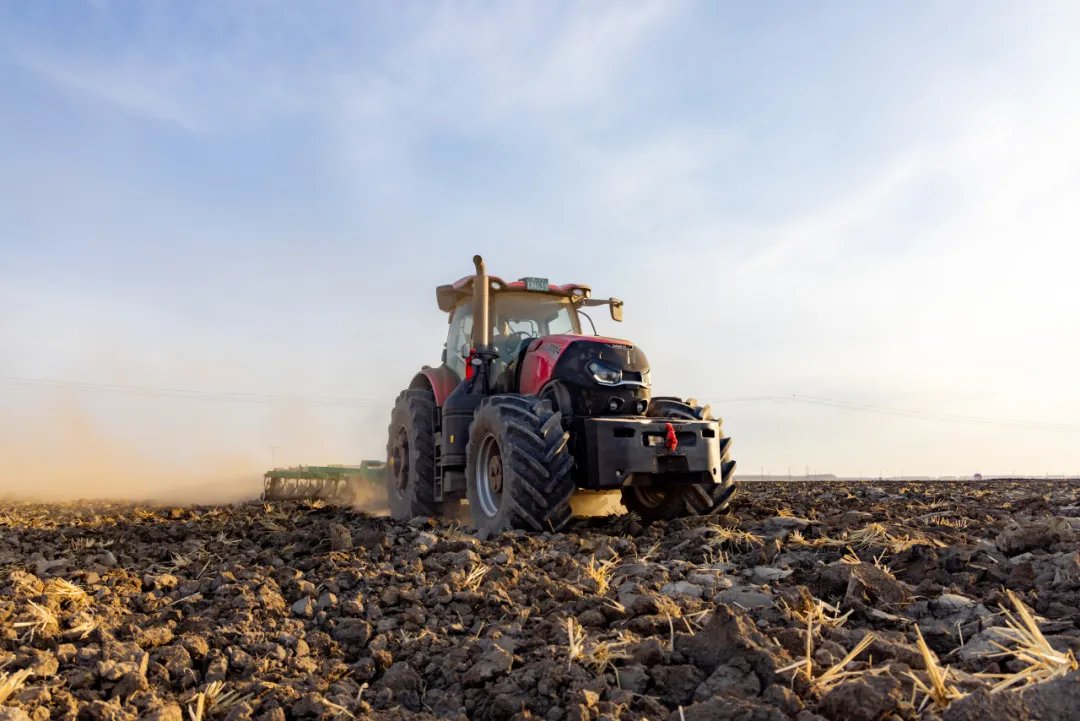
The design of the tire pattern usually takes into account the special requirements of agricultural machinery operations, such as mud traction, high-speed driving and road grip, etc. Therefore, different types of agricultural machinery tires have their own unique pattern designs.
Agricultural machinery tires can be classified into many categories according to their use and structure. Each type of tire has specific characteristics and scope of application. Understanding the different types of agricultural machinery tires can help users choose according to actual needs and improve the efficiency and safety of agricultural machinery operations.
R-1/R-1W (agricultural) tires
R-1/R-1W are the most commonly used agricultural tires. R-1/R-1W tires have a deeper tread pattern with the angle between stripes ranging from 23 to 45 degrees. This type of tire performs well on most soils, such as corn, soybean and wheat fields. It provides excellent traction, self-cleaning, and works reliably on uneven surfaces.
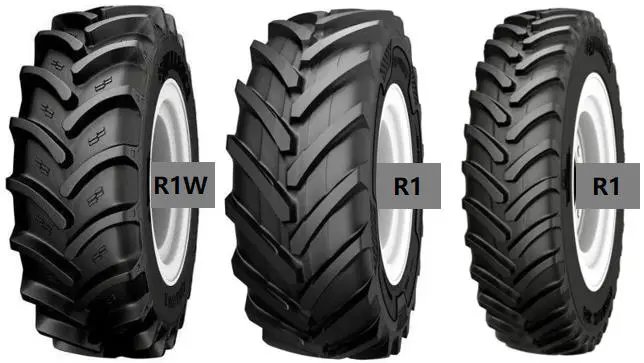
The "W" in R-1W means "wet". The tread pattern of R-1W tires is about 20% higher than that of R-1 tires, which makes them perform better in wet and muddy soil.
R-2 (paddy) tires
R-2 tires have a tread pattern similar to that of R-1 and R-1W tires, but at least twice as deep as R-1 tires.
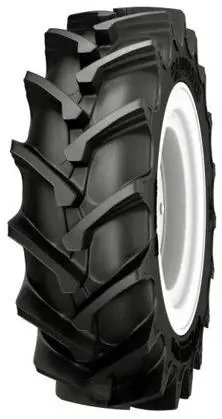
The extra tread depth allows the R-2 tire to work in extremely wet terrain, such as muddy sugar cane fields or rice fields, and is therefore often referred to as a "rice field/sugar cane" tire.
R-3 (turf) tires
Designed for work on lawns, grass or forage crops, the R-3 tires strike a balance between traction and not damaging the grass. The tread design of R-3 tires uses a square or button design, and the rubber creates a void ratio that allows the tire to float on the turf surface.
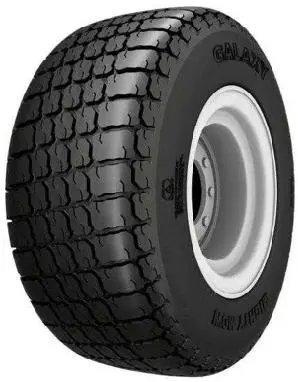
R-1/R-1W and R-2 tires mainly use tread patterns to penetrate the soil to obtain traction, while R3 floats on the grass surface to better protect the grass.
R-4 (industrial) tires
R-4 tires are more versatile and are found on many small family tractors. R-4 tires have strip-shaped lug treads like R-1/R-1W and R-2 tires that usually run straight across the tire, and the tread height is usually only about 70% of that of regular R-1 tires.
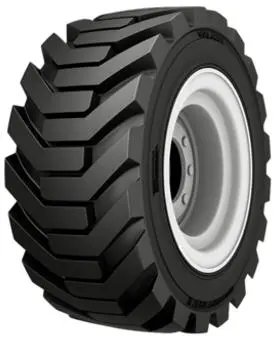
The tread pattern of R-4 tires allows them to operate on a variety of road surfaces. However, its performance can be fully utilized on hard surfaces such as asphalt and concrete. R-4 tires, often referred to as industrial tires, are typically made with a harder rubber compound to extend their life on hard surfaces and can be found on municipal projects or around farms.
Multipurpose tires
Multipurpose tire that combines the benefits of R-1/R-1W, R-3 and R-4 tires. Multi-purpose tires combine the self-cleaning properties and traction of R-1/R-1W tires, the wear resistance of R-4 tires, and the ground protection of R-3 tires to work well in a variety of applications.
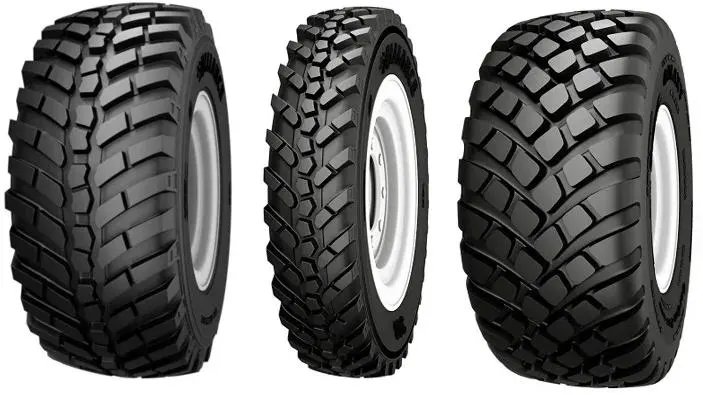
DLFTECH is a professional equipment marketing & service company built by a senior R&D and marketing team in the tire & conveyor belt equipment industry. Benefiting from the rapid follow up of the international rubber industry's process re-engineering and the demand for industrial intelligence, DLFTECH, the best of the best, has rapidly developed into a new star in the international rubber machinery industry.
If any tire or conveyor belt industry customers need such as rubber track curing press, tire mold intelligent laser cleaning system, hydraulic curing press for PCR/TBR, etc., please feel free to contact info@delphygroup.com.


